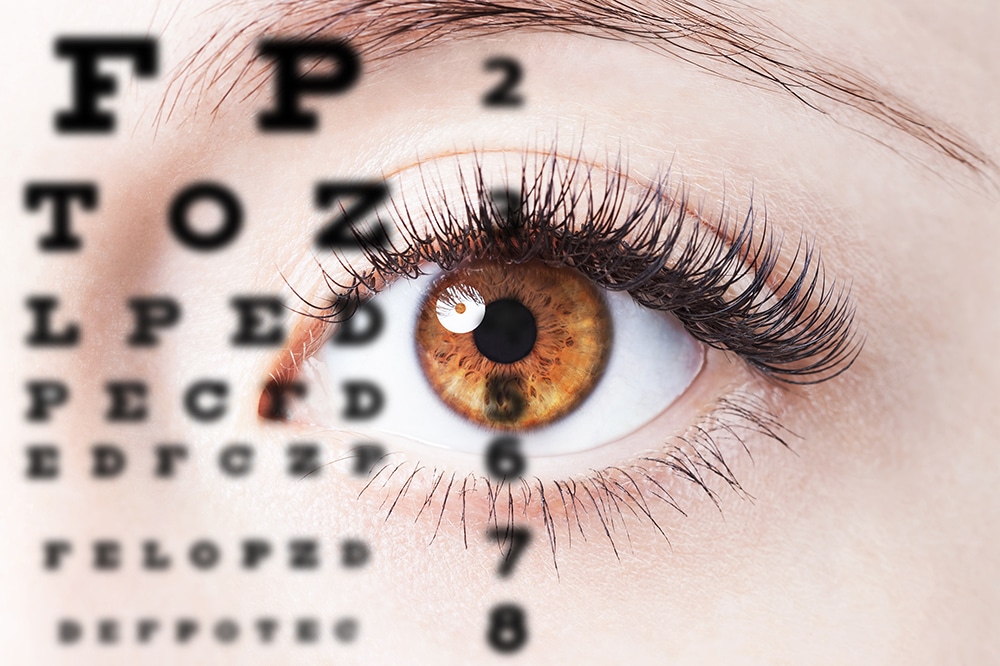
Ophthalmologists are highly-trained ocular professionals, with years of experience helping patients maintain ideal visual health and wellness; however, ophthalmologists are also qualified medical doctors, meaning they are able to use their comprehensive knowledge of the human eye to potentially detect other, more serious, non-vision-related conditions as well. Listed below are just a few of the many conditions your ophthalmologist may be able to detect during your next routine eye exam, as well as a little bit of information on how.
Thyroid Conditions
Thyroid hormones are especially important for maintaining good digestion, heart rate, and other vital systems of the body. Therefore, having a thyroid that is working too hard, or not hard enough, can dramatically alter your health. An ophthalmologist may be able to notice symptoms of various thyroid conditions, like Graves’ disease or hyperthyroidism, by inspecting the eye to see if there are any signs of inflammation, excessive tearing, or even bulging.
Diabetes
Diabetes is one of the more serious health conditions that can directly affect your vision. People with diabetes may suffer from glaucoma, cataracts, diabetic retinopathy, and more. However, while most of these conditions have their own unique collection of symptoms that make detection simpler, an ophthalmologist may be able to diagnose you before the problem reaches critical levels based on the presence of small traces of blood or yellowish fluid seemingly leaking out of the fragile vessels in the retinas, which in most cases causes eventual blindness.
High Cholesterol/Familial Hyperlipidemias
Although high cholesterol does not typically affect visual health, it can wreck havoc on other important parts of your body, like your arteries and heart. During an eye exam, an ophthalmologist may be able to see signs of high cholesterol by noticing if there are any thin whitish or gray rings on the edges of your corneas or yellow “plaque” or blockages of your retinal vessels. In some cases, yellow plaque in or around the eyelids that is visible to the naked eye may indicate a condition called xanthelasma palpebrum, which could be connected to hyperlipidemia.
Autoimmune Disorders
If you have very dry, irritated eyes or you are noticing excessive cloudiness, blurriness, or immense light sensitivity, your ophthalmologist may want to examine your retina for inflammation. Inflammation in the retina may be a sign of an autoimmune condition, such as lupus. However, other conditions, like multiple sclerosis and rheumatoid arthritis may also be detected in the eye.
Blood Clots
In rare cases, such as the case of David Hibler, Sr., a highly-trained ophthalmologist may even be able to effectively detect a blood clot. In fact, Mr. Hibler’s left carotid artery was 98% blocked with a blood clot that very well could have caused an unexpected stroke at any moment, but his life was saved by his trusted ophthalmologist who quickly noticed that small bits of the clot had broken off and traveled to the smaller vessels in the eye, which had created a transient ischemic attack (TIA) resulting in temporary vision loss. Mr. Hibler could have suffered permanent blindness or even met a fatal end had it not been for his ophthalmologist.
Making regular eye exams and staying in touch with your ophthalmologist is essential to maintaining your health. Even if you do not notice any symptoms or problems with your eyes or vision, you never know what a trained ophthalmologist, like ours at Alpine Eye Care, may be able to detect. Be safe, not sorry – schedule your next eye exam today.
If you’re looking for anything from an eye exam to a surgical procedure anywhere in Northern Michigan, schedule an appointment with Alpine Eye Care by calling us directly at 1.877.733.2020 today to learn more about our practice, read patient testimonials, and receive excellent care.
